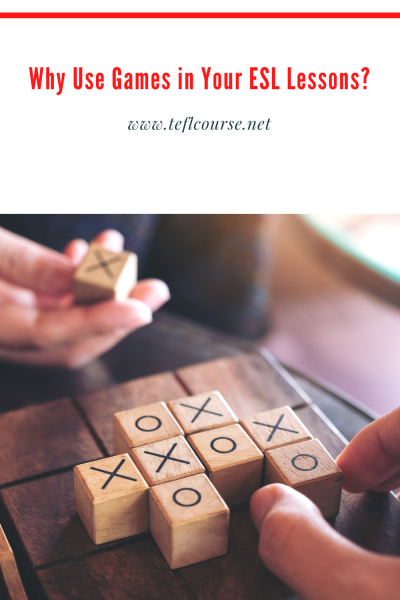Why Use Games in Your ESL Lessons?

Trying to make your class fun and exciting for young learners can be quite difficult at times. The best way to get around teaching young learners is to add games in each lesson. Kids can learn a foreign language without really trying, they soak up the new language like a sponge. It is up to the teacher to be the facilitator in the learning process and make it happen. To be effective in the classroom you have to be able to engage with your young students. By making your lessons lively and interesting you can achieve just that.
This post was written by our TEFL certification graduate Edgar R. Please note that this blog post might not necessarily represent the beliefs or opinions of ITTT.
Reasons to use games
Games during the lesson can be quite an effective way to teach young English learners because the language is absorbed rather than learning it. Learning English vocabulary in a fun way has always been a good method to teach your learners and it has definitely given results in remembering new words. By adding games for your vocabulary words, it creates repetition during the lesson that helps the children practice the new content. The more the students hear and repeat, the more likely they will learn it. You have to believe in the process and stay positive. For best practice make sure that you are changing the games from time to time children get bored of the same material so be creative.
Sometimes when you are trying to teach young learners you have to deal with so many attitudes in the class that it can be challenging to come up with activities to please everyone. You can encounter children who are fearful or are going through their silent period. Some kids have a short attention span and others can be easily overwhelmed. Then you will have the ones that are not motivated to learn or the ones that forget things easily. With games, you can variate your activities to try to get everyone involved. By trying to mix activities you will have the level of participation increase in your classroom.
Also Read: Games in the Classroom: What are EFL games?
Games in the classroom can also improve cooperation with other children.
By providing new and different activities it will introduce some discipline in a fun way. The children now will learn to take turns and be patient. They will learn to share their space with other students. Use their five senses during the activity and be persistent. At last, they will be able to accept the rules in a constructive but not competitive way. This will avoid any misbehaviors from other competitive children in the classroom. Children will not feel pressure to participate during the lesson when they see their classmates having fun in the classroom.
At last, games can improve the teacher and child relationship too. This can be very critical to their new language development. Young children seek approval and praise from their teacher or other adults in their life. Games require both the children and the teacher to interact with each other so it is very important. By having a close relationship with the child it will create the end result in learning the new language a success.
Do you want to teach English abroad? Take a TEFL course!
Apply now & get certified to teach english abroad!
Speak with an ITTT advisor today to put together your personal plan for teaching English abroad.
Send us an email or call us toll-free at 1-800-490-0531 to speak with an ITTT advisor today.
Related Articles:
- The How-To Guide to Prepare for Your Teaching Job Abroad
- 10 Tips to Help Your Students Follow Directions When Teaching English Abroad
- What’s Stopping You from Teaching English Abroad?
- 10 Tips for Teaching Grammar to EFL Students Abroad
- Top Tips for Teaching English in Europe
- 4 Striking Advantages for Non-Native English Teachers in the TEFL Classroom




